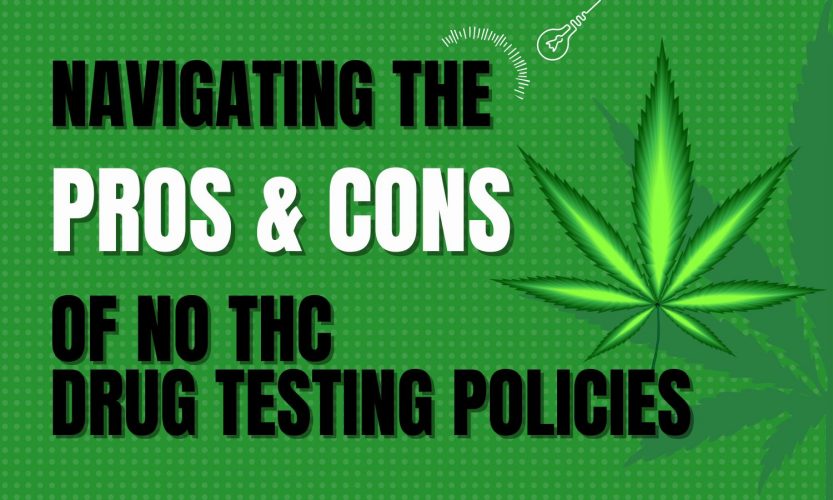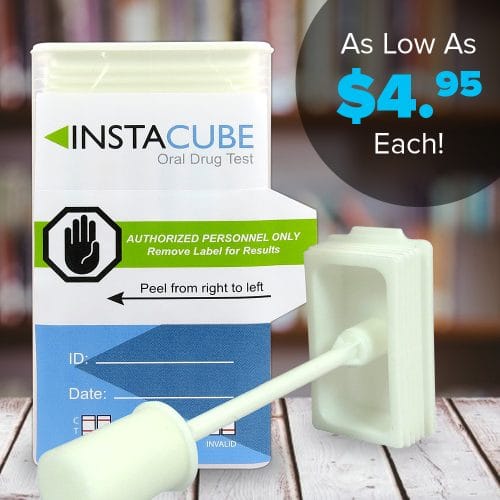In recent years, the debate surrounding cannabis legalization and its impact on workplaces has become increasingly prominent. As organizations grapple with the complexities of drug testing policies, one approach that has gained traction is implementing “no THC” drug testing. This policy prohibits the presence of THC, the psychoactive component of cannabis, in employees’ systems. While proponents argue that it ensures safety and compliance, detractors raise concerns about legality, privacy, and fairness. Let’s explore the pros and cons of no THC drug testing policies to shed light on this contentious issue.
Pros of No THC Drug Testing:
Compliance with Regulations:
For industries subject to federal regulations or safety standards, such as transportation and healthcare, no THC drug testing ensures compliance with legal requirements, reducing the risk of regulatory penalties and liability.
Safety and Risk Reduction:
In safety-sensitive positions where impairment poses significant risks, such as operating heavy machinery or handling hazardous materials, a no THC policy helps maintain a safe work environment by minimizing the potential for impairment-related accidents.
Consistency and Clarity:
Implementing a no THC policy provides clarity and consistency in drug testing protocols across the organization, reducing confusion and ensuring fairness in enforcement.
Promotion of a Drug-Free Culture:
A no THC policy sends a clear message that the organization prioritizes a drug-free workplace culture, promoting professionalism, accountability, and productivity among employees.
If you have eliminated THC from your Drug Testing Program, check out DrugTestsInBulk.com drug test supply options here.
Cons of No THC Drug Testing:
Legal and Privacy Concerns:
In regions where cannabis use is legal for medicinal or recreational purposes, no THC drug testing may infringe upon employees’ privacy rights and raise legal concerns regarding off-duty conduct.
Stigmatization and Discrimination:
Enforcing a no THC policy may perpetuate stigma and discrimination against individuals who use cannabis responsibly, including for medicinal purposes or in accordance with local laws.
Impact on Recruitment and Retention:
Strict no THC policies could deter prospective employees and lead to dissatisfaction among existing staff, particularly in
industries or regions where cannabis use is prevalent or culturally accepted.
False Positives and Inaccuracies:
THC can remain detectable in bodily fluids for an extended period, leading to potential false positives in drug tests and unwarranted disciplinary actions or termination for employees who have consumed cannabis legally and responsibly outside of work.
Complexity of Enforcement:
Determining appropriate THC thresholds for drug testing and distinguishing between active impairment and residual traces of THC can be challenging, leading to inconsistencies in enforcement and potential legal disputes.
No THC drug testing policies present a complex and multifaceted issue for organizations seeking to balance safety, compliance, and employee rights. While they offer benefits such as regulatory compliance and risk reduction, they also raise concerns about legality, privacy, and fairness.
Organizations must carefully consider the implications of no THC drug testing and explore alternative approaches, such as impairment-based testing or education and support programs, to address substance use issues effectively while respecting employees’ rights and privacy. By fostering open dialogue and collaboration, organizations can navigate the complexities of drug testing policies while promoting a safe, inclusive, and productive workplace environment



